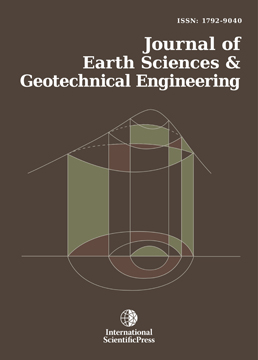Journal of Earth Sciences and Geotechnical Engineering
Greenhouse gas emissions from heavy duty vehicles using upgraded biogas as a fuel
-
 [ Download ]
[ Download ]
- Times downloaded: 10691
Abstract
This paper examines the CH4 loss and the total greenhouse gas emission (GHG emissions) savings associated with the use of upgraded biogas as a fuel for heavy duty vehicles in Denmark. The study focuses on the emissions related to the operation of the vehicles and the emissions from fuel tanking. Emission calculations are made in two scenarios for 2035 using low and high loss CH4 input factors derived from the literature. Results suggest that engine loss/tank boil off is the largest source of CH4 followed by CH4 leaks at the fuel station and the CH4 emissions from exhaust. The low[high] loss emission percentage shares are 57 %[62 %] for engine loss/tank boil off, 43 %[23 %] for fuel station and 0.4 %[15 %] for exhaust. The calculated low and high loss GHG emission reductions are 91 % and 86 % from “tank-to-wheel” (engine loss/tank boil off and exhaust) and 88 % and 84 % from “pump-to-wheel” (engine loss/tank boil off, exhaust and fuel station), in relation to the diesel reference scenario.
